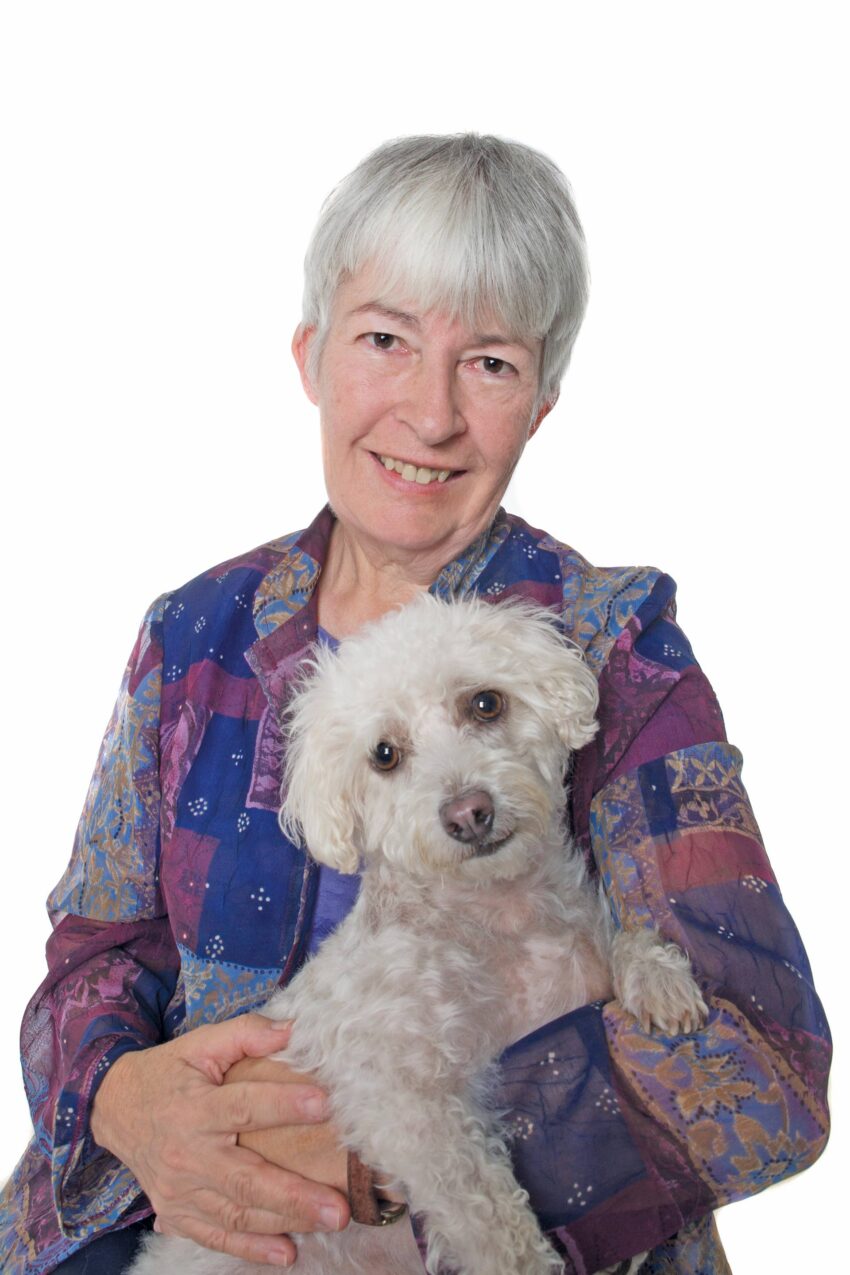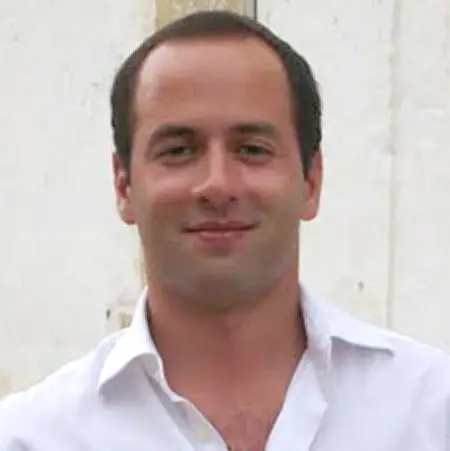
Doutorado em Literatura
na Universidade do Algarve;
Investigador do CLEPUL
Juliet Marillier, publicada em Portugal pela Planeta Editora, é uma autora best-seller, estatuto que mantém desde o seu primeiro romance, A Filha da Floresta. A Harpa dos Reisé o primeiro livro da nova série Bardos Guerreiros.
Mundialmente conhecida na área da fantasia histórica celta, a autora nasceu em Dunedin, Nova Zelândia, a cidade mais escocesa fora da Escócia. Os seus livros combinam romance e história, drama e fantasia, folclore e mitologia, no contexto do universo celta. Já venceu 15 prémios literários, como o prestigiado Aurealis Award. Entre diversas trilogias, destacam-se três séries de imenso sucesso: Sevenwaters, Shadowfell e Blackthorn e Grim.
Foi professora de música, responsável por um grupo coral e cantora de ópera. Começou a publicar depois dos 40 anos e nunca mais parou. A autora é membro da ordem druídica OBOD(Ordem dos Bardos, Ovates e Druidas) e os seus valores espirituais reflectem-se muito na sua ficção – onde a relação das personagens humanas com o mundo natural desempenha um papel importante, assim como o poder da contação de histórias para ensinar e para curar.
Juliet Marillier já visitou Portugal e é fã dos livros de Saramago.
Esta nova série iniciada com A Harpa dos Reisretoma duas personagens da saga anterior. Blackthorn e Grim (as suas personagens mais complexas) foram assim tão poderosas para a fazer continuar a sua história?
Adorei escrever a história de Blackthorn e Grim, personagens complexas e feridas, e quando pensei na trilogia dos Bardos Guerreirosapercebi-me que podia incluir “o que acontece depois” ao escrever sobre a geração seguinte: os seus filhos. Blackthorn e Grim foram absolutamente reais para mim, por isso foi um prazer continuar a sua história.
Os seus livros seguem uma fórmula, em que cada nova história é absolutamente original e apaixonante. «As histórias são como bolos de mel. Mal provamos um, queremos outro e outro e sempre mais.» (p. 208)
Há elementos consistentes, em particular nos primeiros livros. Gosto de incluir uma história de amor; geralmente uma jovem protagonista feminina que descobre a sua força interior ao enfrentar um desafio; e muitas das histórias situam-se em culturas célticas dentro do mesmo período histórico. Mas não acredito que os livros sigam uma fórmula, até porque muitas vezes distancio-me.
Tem razão quanto aos bolos de mel. Uma história pode ser contada e recontada de muitas formas diferentes, e alterar-se-á para se adaptar ao tempo e cultura em que se insere. Dou valor ao papel da contação de histórias como meio de ensino e de cura, o que aliás influencia a minha escrita. Recorri a um conto tradicional como ponto de partida para 5 dos meus 23 livros, mas há temas e motivos de contos tradicionais, folclore e mitologia em todos. A minha estratégia tem-se desenvolvido nestes 20 anos como autora. Nas 2 obras mais recentes o tom foi mais negro. Tenho descido mais fundo na complexidade psicológica das personagens, e criar uma perspectiva partilhada entre os protagonistas feminino e masculino.
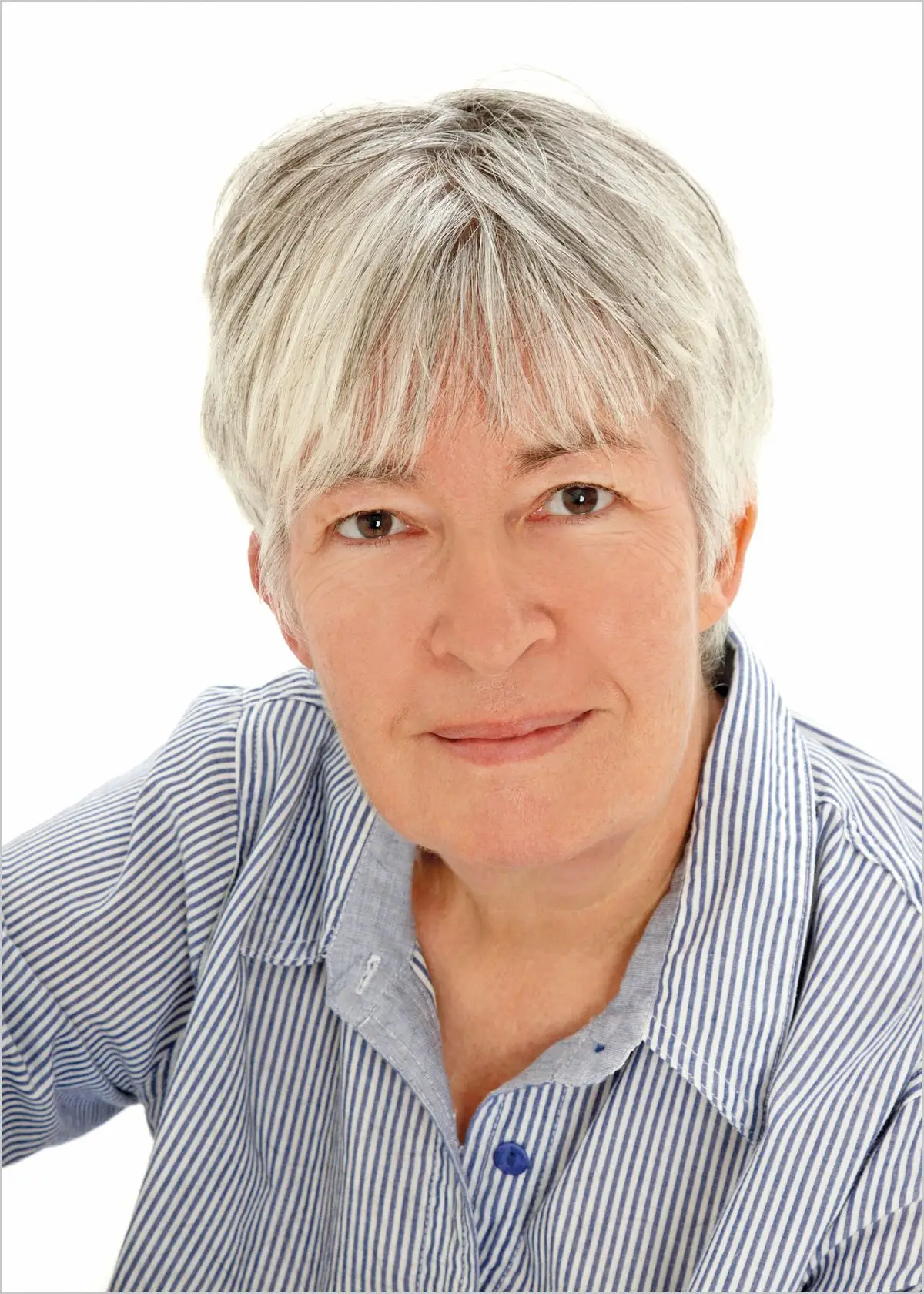
Concilia aqui vários aspectos dos seus livros, como se tudo convergisse neste universo ficcional.
Existem definitivamente afinidades entre A Harpa dos Reise várias das minhas séries, como Sevenwaterse Blackthorn & Grim. O exército de guerreiros tatuados que primeiro apareceu em O Filho das Sombrasganha um papel mais relevante nesta série. Essas 3 trilogias situam-se no norte da Irlanda no mesmo período temporal (ainda que esta história com elementos sobrenaturais seja inspirada na mitologia e folclore local).
Pela primeira vez fornece informações sobre o mundo dos druidas. Contudo, o tema não lhe é novo.
Tenho personagens druidas noutros livros – Broichan em As Crónicas de Bridei, e Conor em Sevenwaters. Mas entrar nos nemetons, onde vivem os druidas, e experienciar um pouco da sua vida diária é uma novidade. Não sabemos como realmente era naquele tempo, uma vez que os druidas não deixaram muitos registos por escrito, mas acredito que as cenas da vida na comunidade druídica sejam bastante fidedignas, construídas com base em pistas históricas que temos sobre o treino dos druidas, crenças e rituais da época, e no Druídismo contemporâneo.
O que significa ser um druida hoje?
Há várias ordens druídicas activas hoje, espalhadas por todo o mundo. Sou membro da Ordem dos Bardos, Ovates e Druidas. Enquanto caminho espiritual, o druídismo moderno é bastante flexível nas suas práticas e crenças. Os elementos que considero essenciais são a valorização do poder da contação de histórias como forma de ensinar e de curar; a compreensão do papel da humanidade na vastidão da natureza, o que leva a trabalho ambiental e de conservação; e a crença de que Deusou a Deusaou o Espíritoexistem em cada entidade viva, incluindo nos seres humanos, unindo-nos e sustendo-nos. Alguns druidas mantêm a sua prática de forma solitária, outros em grupos; uns praticam rituais, outros não. Quase todos adoram música, poesia e contar histórias.
«O mundo muda. As pessoas não praticam os costumes antigos nas suas vidas diárias como outrora faziam». Parece falar dos seus livros.
É possível que uma história – numa época antiga, num mundo imaginário, ou no futuro – tenha um significado profundo e ressoe no íntimo do leitor. Ser uma história com elementos mágicos não a torna menos relevante para as nossas vidas. As velhas histórias de monstros e magia contadas há muito tempo em torno da fogueira não serviam apenas para entreter – eram igualmente concebidas para demonstrar às pessoas como podiam viver com bravura e sagacidade. Estou a contar esse mesmo género de histórias, e mesmo que chegue a um único leitor – se ele se sentir mais forte e sábio depois de ler um livro meu –, já me permite sentir que fiz o meu trabalho, como druida e como ser humano.
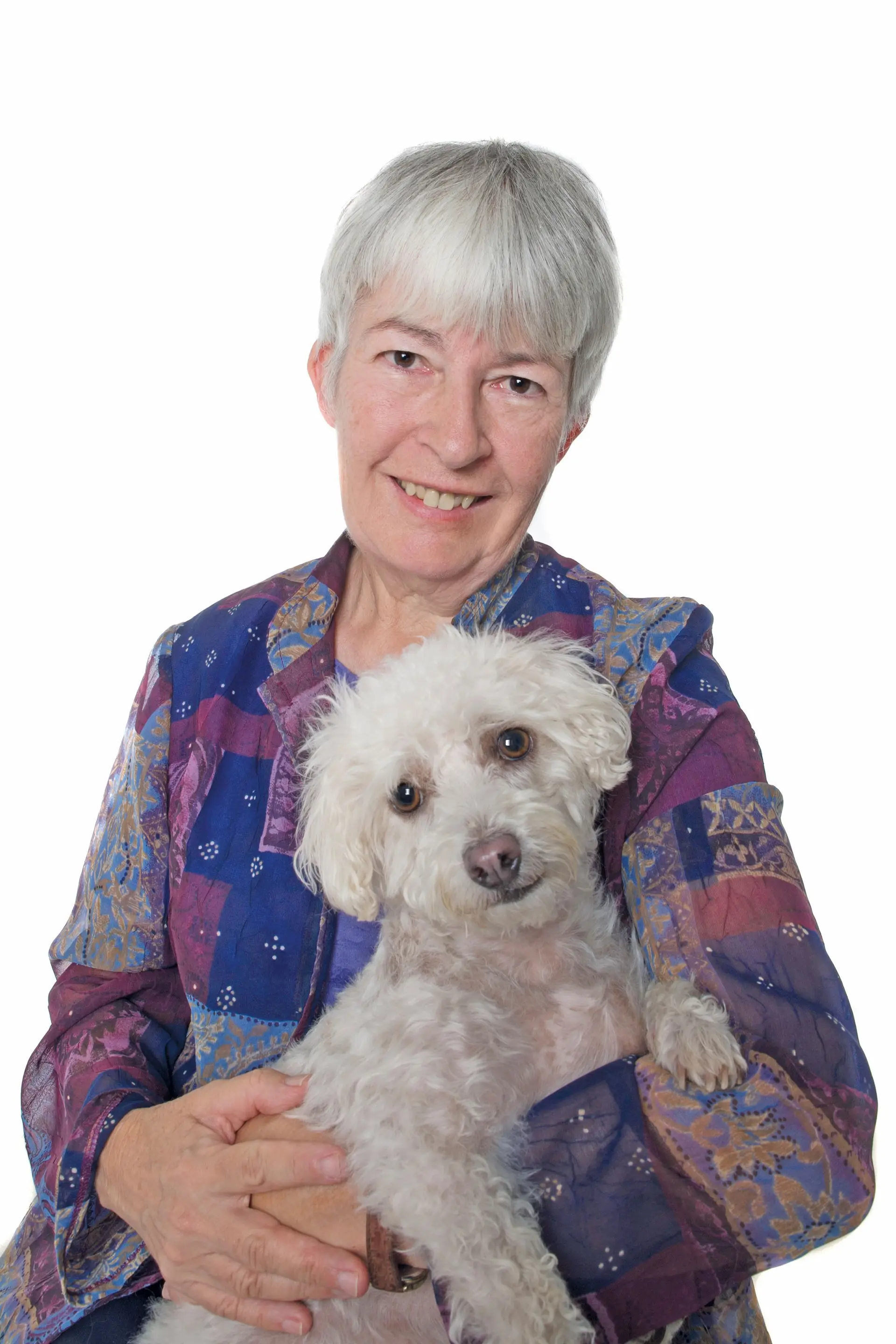
Os seus livros estão tão embutidos de influências do folclore escocês e contos tradicionais que é quase errado considerá-los fantasia.
Cresci numa parte da Nova Zelândia fundada por imigrantes escoceses, e os meus antepassados são escoceses e irlandeses. Os elementos sobrenaturais dos meus livros baseiam-se sempre naquilo em que as pessoas acreditavam na época. Faço imensa pesquisa. Ainda que o mundo onde as personagens habitam seja cheio de magia, trata-se do nosso mundo real no referente à geografia, cultura, contexto histórico. Os desafios e provações que as personagens enfrentam, por exemplo a injustiça ou a tirania, são essencialmente os mesmos que enfrentamos hoje.
Existe frequentemente ajuda sobrenatural, sim, mas as histórias são sobre personagens humanas que encontram a sua própria força e sabedoria.
Quando foi a primeira vez que ouviu essas histórias?
Os meus pais eram músicos e leitores ávidos. Lembro-me de me contarem histórias do folclore e da mitologia. Ao aprender a ler essas eram as histórias que preferia. A minha família provém de países de tradição céltica pelo que tenho uma forte ligação a essas histórias e à música. Havia uma biblioteca fabulosa para crianças onde vivíamos, e eu requisitava imensos livros, particularmente as colecções de contos tradicionais de todo o mundo de Andrew Lang. Esses aspectos tiveram um forte impacto na minha escrita.
Ainda que este livro seja anterior à pandemia, transmite a mensagem de nos reconectarmos com a natureza, a fé, a arte. «Esta canção deve constituir uma ponte entre o Povo Encantado e o povo humano. (…) Deve recordar a todos que em épocas de dificuldades sobreviveremos apenas se confiarmos e nos respeitarmos um ao outro.» (p. 212)
Vivemos tempos muito difíceis – não só pela pandemia, mas pela ameaça iminente das mudanças climáticas. Estamos à beira de um precipício, perto de destruir este mundo precioso e belo devido à ganância e à intolerância. A confiança e o respeito são essenciais para um trabalho colaborativo da humanidade face à crise, em vez de continuarmos com jogos de poder e nos recusarmos a aceitar o quão séria é a situação. Devemos respeitar-nos mutuamente e respeitar o mundo. Pode ser essa a mensagem. Gostaria que os políticos a ouvissem.
Perguntavam muitas vezes a Marion Zimmer Bradley: «De onde vêm as ideias para as suas histórias?». De onde vêm os seus sonhos – aqueles que nos faz sonhar com a sua ficção?
Penso que os sonhos nascem do meu amor pelo folclore e pela mitologia, da minha crença de que existe magia e mistério no mundo real – basta abrirmos as nossas mentes. Houve grandes períodos da vida em que enfrentei imensos desafios, mas consegui preservar (ou redescobrir) a sensação de maravilhamento que tinha em criança ao ler, e isso transparece nas minhas histórias. Talvez eu tenha algum ADN de contadora de histórias, transmitido pelos meus antepassados celtas.
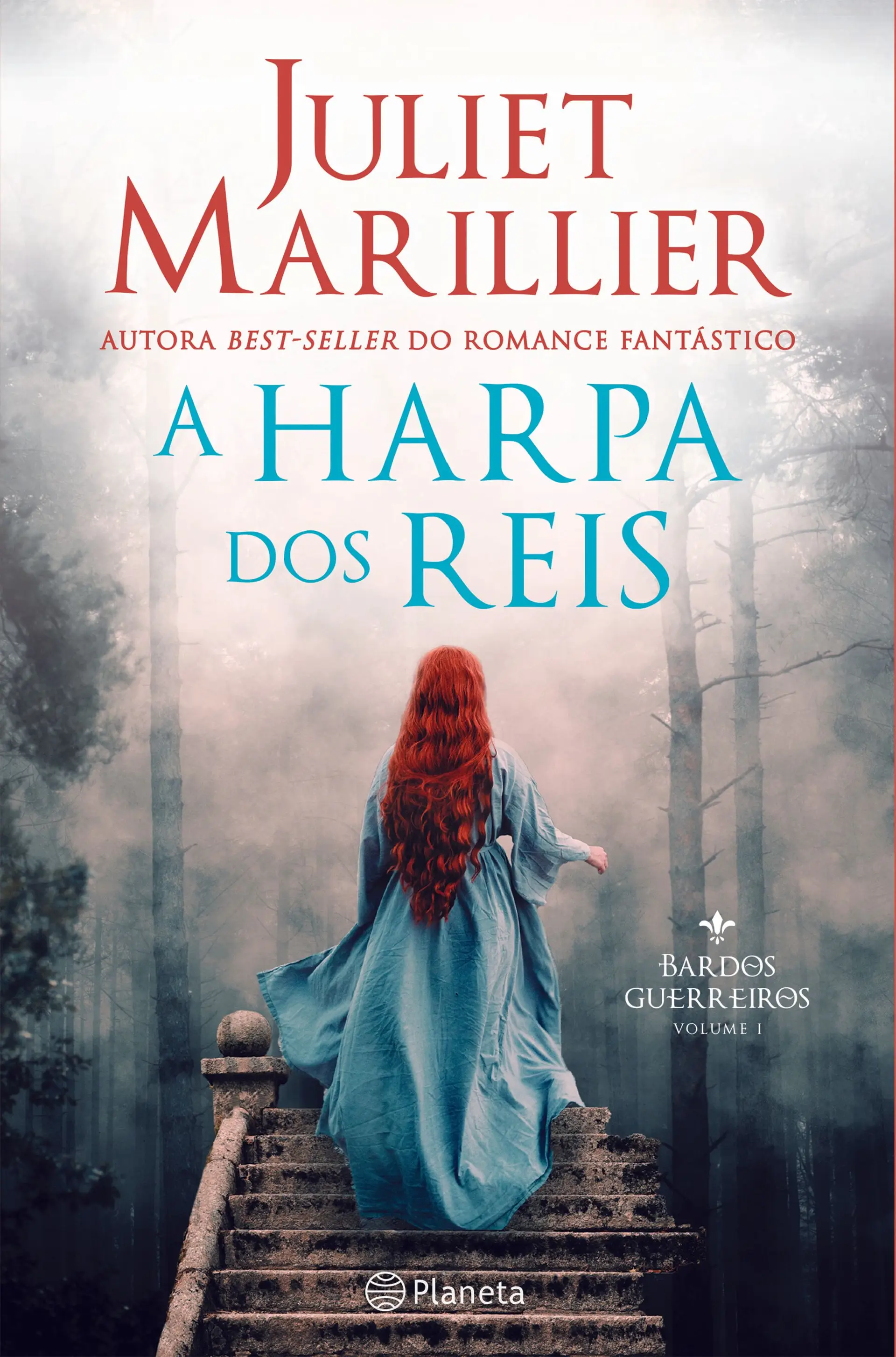
Começou a escrever relativamente tarde. Agora escreve um livro a cada 2 anos.
Escrevo desde que tenho idade para assentar uma caneta num papel, e fui uma escritora bastante assídua em criança. Na universidade decidi estudar músicas e línguas, depois estive ocupada a criar 4 filhos enquanto mantinha diversos trabalhos, e só voltei à escrita criativa aos 40. Sempre gostei de ler, e como professora de música e como funcionária pública, continuei a escrever. Depois do meu casamento terminar, decidi escrever uma versão de um conto de que gostava muito, e nos 3 anos seguintes, enquanto mantinha a tempo inteiro um trabalho administrativo, escrevi o meu primeiro livro, A Filha da Floresta, escolhido pela editora Pan Macmillan. Foi o início da minha carreira de autora. Em média, escrevo um livro por ano desde então. Tive sorte em poder abdicar do meu trabalho, 4 anos depois do meu primeiro livro, e tornei-me escritora a tempo inteiro.
É muito activa – com trabalho comunitário, a socorrer cães, aulas de escrita. Como é que consegue tempo para escrever.
Escrever é a minha principal ocupação e encaixo as outras actividades conforme posso. Como trabalho em casa, as outras actividades permitem-me deixar regularmente a secretária e interagir com pessoas. Devido à pandemia não tenho feito oficinas de escrita ou eventos públicos, mas interajo bastante com os meus leitores através do Facebook. O jardim e os cães que resgato ajudam-me a centrar. Infelizmente, a minha pequena matilha está agora reduzida a um cão… os dois mais velhos morreram este ano.
Autores e livros favoritos?
Tenho lido imensas histórias de crimes. Sou uma grande fã de Anne Cleeves, autora das séries Shetlande Vera, adaptadas a séries populares. Também gosto de Elly Griffiths. Gosto de romances que combinem excelente prosa com uma história cativante. Dois dos mais recentes que li de fantasia são Circe, de Madeline Miller, e The Binding, de Bridget Collins – complexos, memoráveis, maravilhosamente escritos.
Esteve em Portugal em 2013. Foi a única vez? Que memórias levou?
Visitei Portugal 2 vezes a convite da minha editora. Viajei até Sintra com leitores do grupo Mundo Marillier. Adorei os antigos palácios e a beleza natural envolvente. Os edifícios em Lisboa com os seus mosaicos decorativos são lindíssimos. É uma cidade magnífica debruçada sobre o rio. Adorei poder conversar com os meus entusiásticos leitores, não só nas sessões promovidas, mas também em contextos mais informais. O café português é fantástico! Especialmente com um pastel de nata. Tenho pena de que as actuais condições excluam a possibilidade de viajar.
Imagina alguém capaz de adaptar as suas histórias ao cinema ou a uma série?
É possível, mas é difícil ter realizadores interessados – financiar um filme é bastante dispendioso. Adorava que fosse a Jane Campion ou o Peter Jackson.
O segundo livro da saga está publicado (mas ainda não em Portugal), pelo que o terceiro deve vir a caminho…
Definitivamente! Estou a trabalhar arduamente no livro, provisoriamente intitulado A Song of Flight. Está quase terminado. A edição original em inglês deve ser publicada em Agosto de 2021.
(Artigo publicado no Caderno Cultura.Sul de setembro)
Interview with Juliet Marillier: “We’re on the brink of destroying this beautiful, precious world”

Doutorado em Literatura
na Universidade do Algarve;
Investigador do CLEPUL
Juliet Marillier, published in Portugal by Planeta Editora, is a best-selling author, since her first novel, Daughter of the Forest.
The Harp of Kings is her first novel from the new series Warrior Bards. Worldly known in the genre of celtic historical fantasy, the author was born in Dunedin, New Zealand, the most Scottish city outside Scotland. Her books combine romance and history, drama and fantasy, folklore and mythology, within the celtic world.
Juliet Marillier has won 15 literary prizes, like the prestigious Aurealis Award. Among various trilogies, 3 of the more successful are Sevenwaters, Shadowfell or Blackthorn & Grim.
Juliet taught music, was responsible for a choral group, and an opera singer. She was around 40 when she started publishing and has never stopped since then. Juliet is a member of the druid order OBOD (The Order of Bards, Ovates and Druids) and her spiritual values are often reflected in her work – the human characters relationship with the natural world plays a significant part, as does the power of storytelling to teach and to heal.
Juliet has already visited Portugal and she’s a big fan of José Saramago.
I believe it’s the first time we have a series that follows two previous characters. Were Blackthorn and Grim (probably also your most complex characters so far) so powerful that you had the urge to continue their story, even though through their children?
I loved writing the story of Blackthorn and Grim, a pair of complex and damaged characters, and when I thought of the Warrior Bards story, I realized I could include ‘what happened afterwards’ for those two characters by writing about the next generation. Blackthorn and Grim felt entirely real to me as I was writing their story, so it was a delight to continue it in the background of this new series.
When first reading about Liobhan, and while discovering the character, I had the image of Princess Merida, the young redhaired girl in the movie Brave (from Disney-Pixar). Was there some inspiration in that movie?
None at all – I built Liobhan’s character based on the most striking physical and mental characteristics of her parents and the sort of upbringing she would have had. But I do like Princess Merida!
Your books follow what we may call a formula, but each story is completely new and captivating. How does this work? (In fact there is a passage in the book that illustrates these idea that one can never hear too many stories… they are like honey cakes?)
There are some consistent elements, especially in my earlier books. I like to include a love story; I generally feature a female protagonist who discovers her inner strength while facing a challenge; and many of my stories are set in Celtic cultures in around the same historical period. But I do quite frequently depart from that in one way or another, so I don’t believe the books are formulaic!
You’re right about the honey cakes. A story can be told and retold in many different ways, and it changes to suit its time and culture. I value the role of traditional storytelling to teach and to heal, and that influences the way I write. I’ve used a fairytale as the basis for only five out of my twenty-three novels, but there are themes or motifs from fairytales, folklore or mythology in all of them. My approach to storytelling has developed over the twenty-plus years I’ve been a published author. In my two most recent series the stories have been darker. I have gone deeper into the psychology of the characters, and I have shared the focus between male and female protagonists.
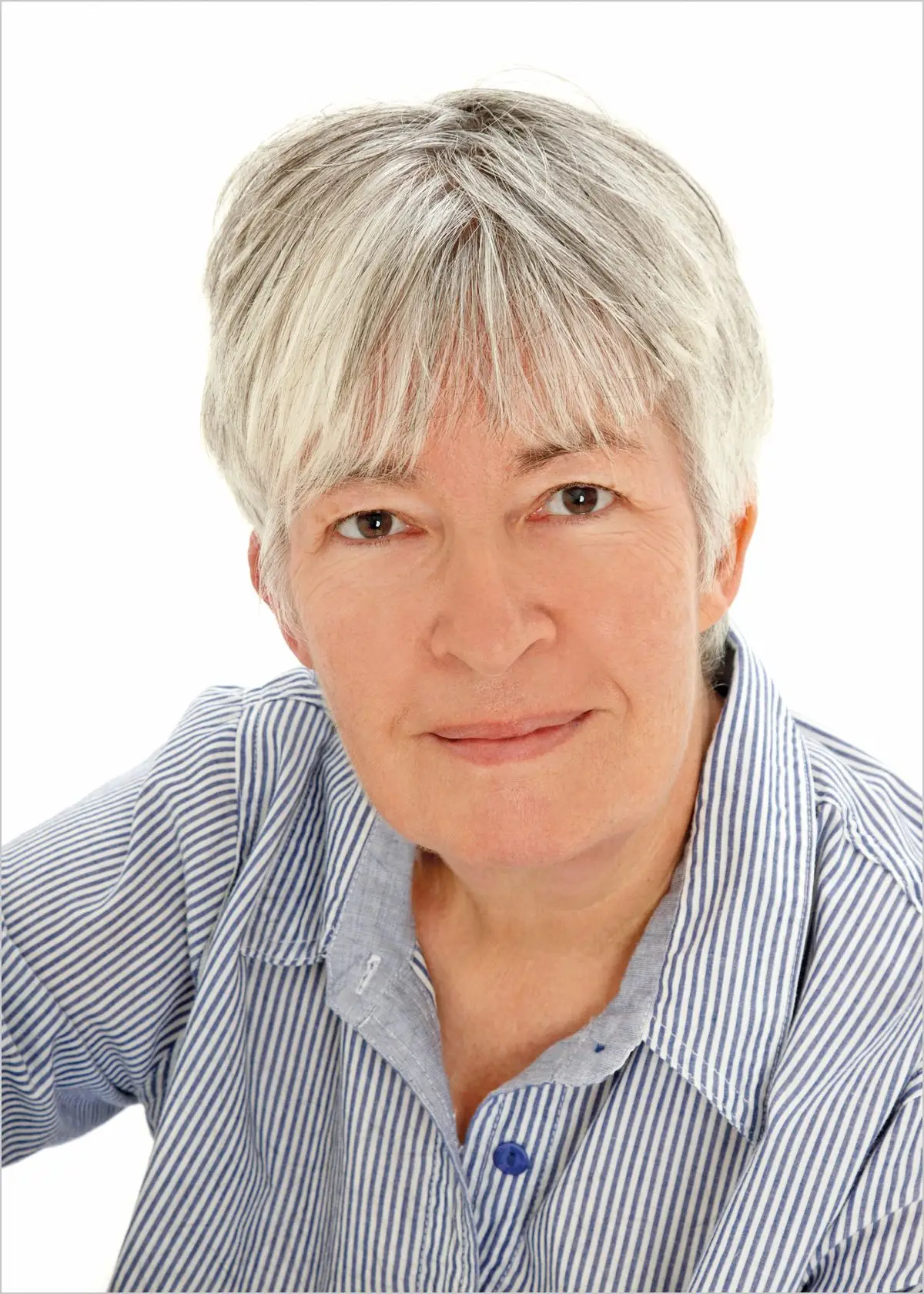
I had the feeling that in this book you somehow bring together various aspects from other books and series, as if everything you’ve once wrote is converging to this fictional universe…
There are certainly links between The Harp of Kings and several of my previous series, notably the Sevenwaters books and the Blackthorn & Grim series. The tattooed warrior band that first made an appearance in Son of the Shadows gets a more prominent role in the Warrior Bards series. Those three series are all set in the north of Ireland in roughly the same period in history (though this is a history with uncanny elements based on the local folklore and mythology.) I’ve gone further afield in my other work – the islands of Orkney and the Faroes for Wolfskin and Foxmask, the realm of the Picts for the Bridei Chronicles, and so on – those stories don’t link up with the Celtic ones as both the place and the period are different.
For the first time (I think), you give us some insight about druids. I have the idea that the theme is not entirely new to you…
I have included druid characters in earlier books – Broichan in the Bridei Chronicles, for instance, who is a powerbroker and kingmaker in Pictish society, and Conor in the Sevenwaters series. But actually going into the nemetons, where the druids live, and experiencing a little of their daily life, as I do in The Harp of Kings, is new, yes. We can’t know how it actually was in that time, as the druids themselves did not keep written records, but I think those scenes of life within the druid community might be reasonably accurate. They’re built partly from the historical clues we have about druid training, beliefs and rituals of that time, and partly from contemporary Druidry.
What can you tell us about what it means to be a druid nowadays?
There are several active druid orders today, some with branches all over the world. I am a member of OBOD (The Order of Bards, Ovates and Druids.) As a spiritual path, modern Druidry is quite flexible in its practices and beliefs. The main elements for me are a recognition of the power of storytelling to teach and to heal; an understanding of humankind’s place in the great web of nature, which leads to environmental and conservation work; and the belief that god/goddess/spirit exists within every living thing, humans included, uniting and sustaining us. Some druids practise alone, some in groups. Some conduct rituals, some don’t. Most druids love music, poetry and storytelling!
There is also a passage in the book where we can read that «the world changes» and «people have lost their tradition and rituals», and being a druid may help people to reconnect and understand ancient and vital knowledge. Seems you may be talking about yourself, even though the tendency is to call you a «phantasy» writer.
It is possible for a story set in ancient history, or in an imaginary world, or in the future, to have deep meaning and resonance for a reader living in our contemporary world. The fact that a story has uncanny or magical elements does not make it any less relevant to our lives. The old stories of monsters and magic told by the fire long ago in subsistence communities were not meant solely for entertainment – they were also designed to teach people how to live their lives bravely and wisely. In a way, I am telling that same kind of story, and if even one reader becomes a little stronger and wiser after reading one of my books, I feel as if I’m doing my job, not only as a druid but as a human being.
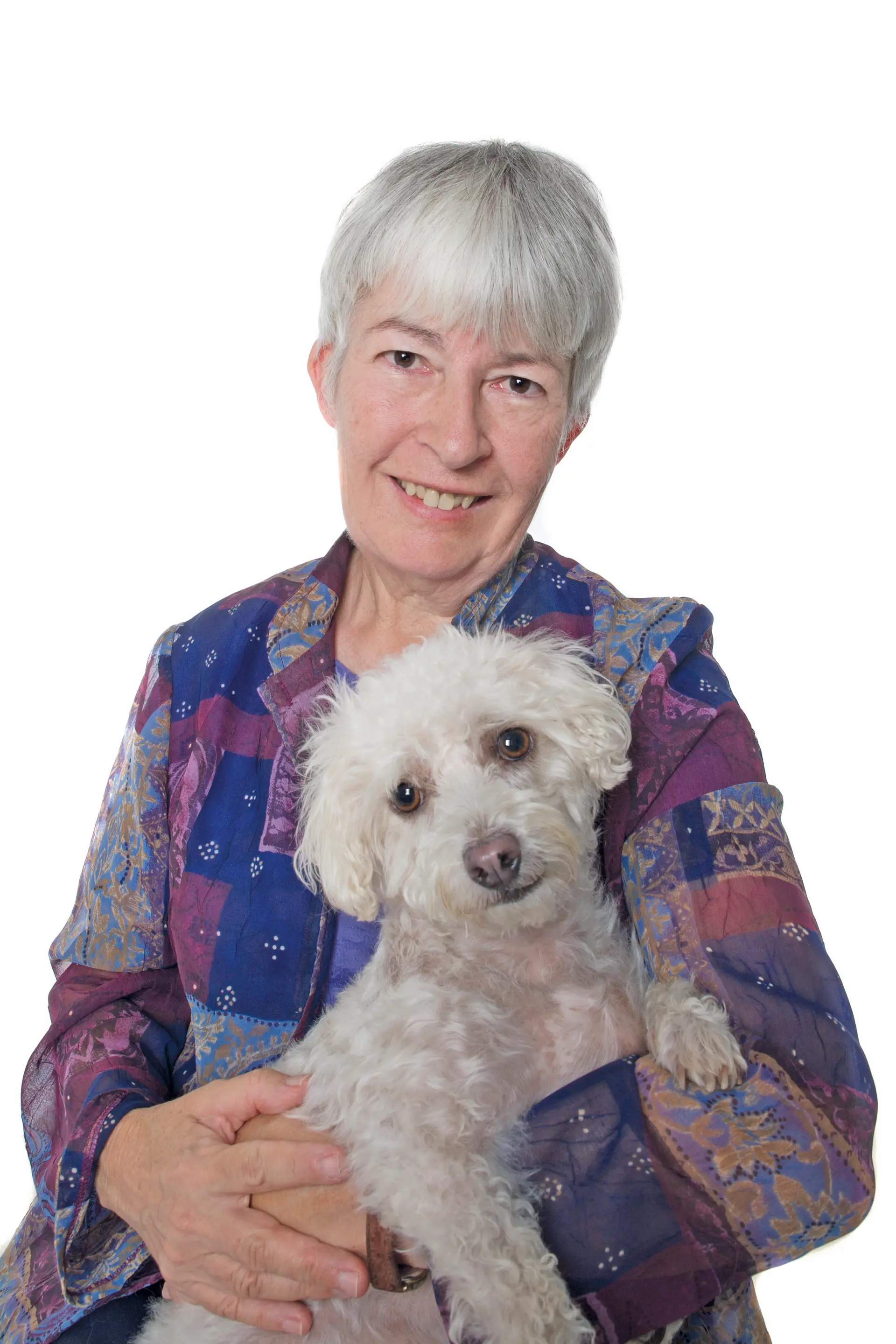
In fact I believe that your books are so embedded in Scottish folklore and folk tales that it’s almost wrong to consider them phantasy… Characters, usually female, that go through trials and challenges, even though there is always some supernatural help.
I grew up in a part of New Zealand settled by Scottish immigrants, and my ancestry is Scottish and Irish, so that is not really surprising! The supernatural elements in my books are always based on what the people of that time and culture might actually have believed in. I do a great deal of research for my books. While the world my characters live in is full of magic, it is our real world in terms of its geography, culture, and broad historical framework. And the challenges my characters face, for instance the need to stand strong against injustice or tyranny, are essentially the same ones we face in today’s world. There’s often supernatural help, yes, but the stories are about human characters finding their own inner strength and wisdom.
Can you tell us when did you first hear these kind of stories? How did you first entered that realm?
My parents were musicians and keen readers. I can remember them telling me stories, often folklore or mythology, and when I learned to read, that was the kind of story I loved best. Because my family came from countries with a Celtic tradition, I feel a strong link with those stories and that music. There was a wonderful Children’s Library in our town, and I borrowed many books there, notably Andrew Lang’s fairy tale collections, which included stories from all around the world. Those factors had a huge impact on my writing.
I know this book is previous to the actual pandemic, but it surpasses a strong notion that more than bringing magic to the ordinary it’s absolutely imperative for us to reconnect with nature, faith, art… One can read something like «Through troubled times, trust and respect of one another is the only key to survival.»
We live in very troubled times – not only the pandemic, but the looming threat of climate change. We’re on the brink of destroying this beautiful, precious world because of greed and intolerance. Trust and respect are key to humankind working cooperatively in the face of crisis, rather than playing power games or refusing to accept how serious the situation is. Respect one another, and respect every part of the natural world. That might be the message. I wish I could get politicians to listen to it.
Marion Zimmer Bradley wrote that people often asked her «Where do you get the ideas for your novels». Can I ask, where do your dreams – the ones you make us dream with your fiction – come from?
I think the dreams are born from my lifelong love of folklore and mythology, along with my belief that there is magic and mystery in our real world, if only we open our minds to it. There were long periods when my own life was full of challenges, but I’ve managed to retain (or rediscover) the sense of wonder I had as a small child reading fairy tales, and that creeps into my stories all the time. Perhaps I have some storyteller DNA, passed down from my Celtic ancestors.
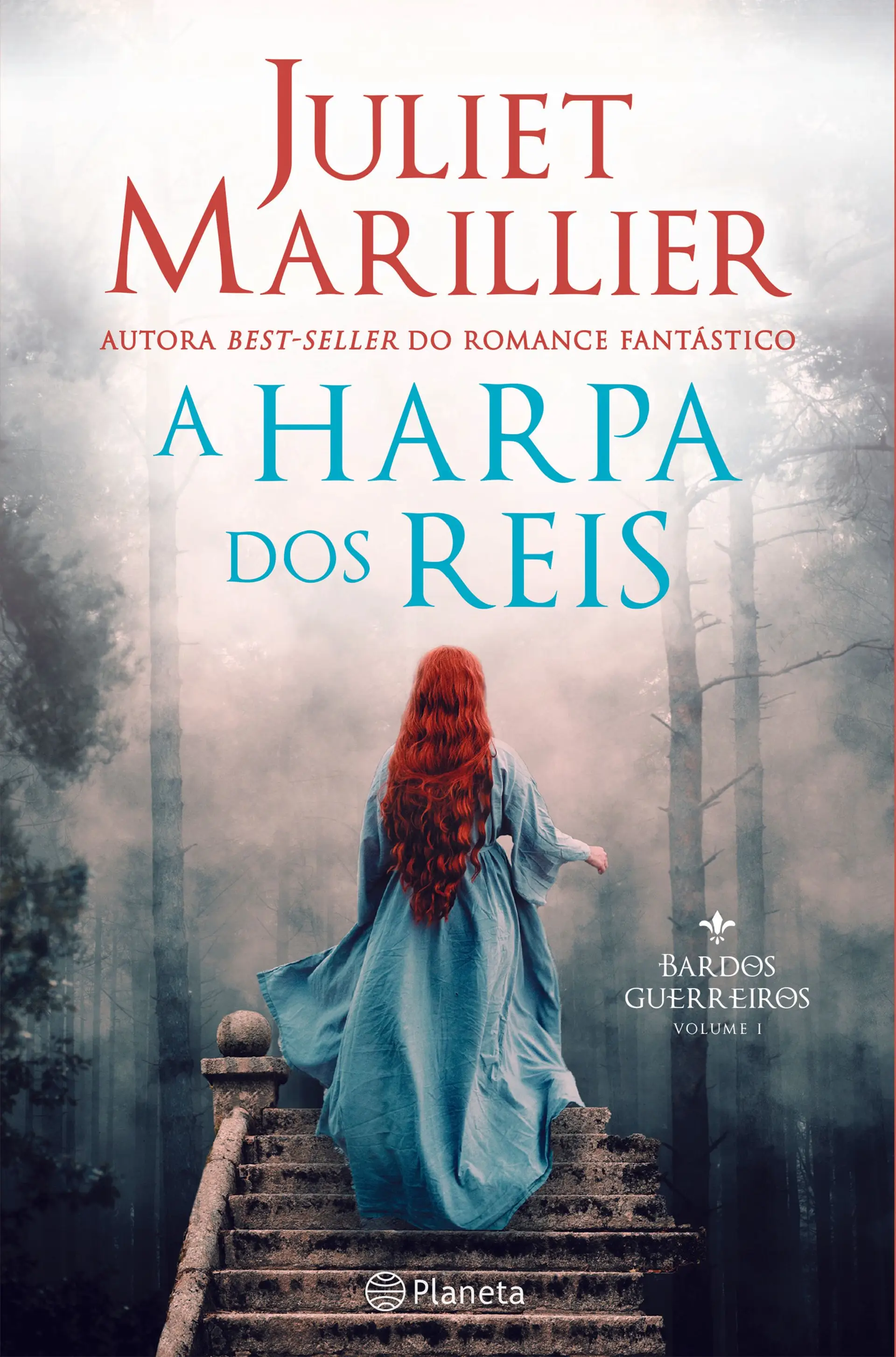
You started writing later in life, even though you know give birth to a new book regularly – every 2 years, more or less. How did you start writing?
I’ve been writing since I was old enough to set pen to paper, and I was quite a prolific writer as a child. My first longish story was about scientists finding prehistoric life in the fjords of New Zealand, and when I was about nine I wrote a story about rampaging killer robots. But I chose to study music and languages at university, then was occupied with raising four children while working in various jobs, and I didn’t return to creative writing until I was in my forties. I had always loved to read, and in my work as a music teacher and later as a public servant, I continued writing in one form or another. After my marriage broke up, I decided I’d like to write a version of a particular fairy tale I loved, and over the course of three years, while working full time in an administrative job, I wrote my first novel, Daughter of the Forest. That was the start of my career as an author. The book was picked up by Pan Macmillan, with two sequels, and I’ve written, on average, a book every year since then. I was lucky enough to be able to quit my day job four years after that first novel was published and become a full time writer.
In fact, you seem to have such a wide range of interests and be such an active person – doing community workshops, rescuing dogs, I think you even have a garden – that is a small wonder how you find time to write…
As I look at it, writing is my full time day job, and I fit those other activities around it. But because I work from home, the other activities are good for getting me up from my desk regularly and ensuring I have some human interaction! Because of the pandemic, I haven’t been presenting any workshops or doing other public appearances for a while, though I engage with readers online through my Facebook author page. I have just participated in Worldcon (the World Science Fiction and Fantasy Convention) which was to have been held in New Zealand. Because of the pandemic, it was run as an online convention, using Zoom and other platforms. The garden and the rescue dogs keep me grounded. But sadly, my little pack of dogs is now down to just one, as two old and frail dogs died earlier this year.
Do you have any favourite authors? What kind of books do you prefer to read?
During the pandemic I’ve been reading a lot of crime series. I’m a big fan of Anne Cleeves, who wrote the Shetland and Vera books, both of which became successful television series. I also enjoy works by Elly Griffiths. I like a story that combines excellent writing with compelling storytelling. Two of my recent favourites in fantasy were Madeline Miller’s Circe, and The Binding by Bridget Collins – complex and memorable stories, beautifully written.
I believe you’ve been in Portugal already, in 2013? Only once? What memories do you have?
I have visited Portugal twice as a guest of my publisher. I travelled to visit Sintra with readers from the group Mundo Marillier – I loved the old palaces there and the stunning natural surroundings. The buildings in Lisbon with their decorative tiling are beautiful. It’s a magnificent city with its wonderful harbour views. I especially loved chatting with my enthusiastic readers, not only at signings hosted by bookseller Fnac, but also in informal settings. Also, Portuguese coffee is the best! Especially with a custard tart. I’m sad that current conditions rule out international travel.
Can you imagine someone capable of bringing your stories to the big screen? Or a mini-series?
I think it might be possible, but it can be hard to get directors interested – financing movies is an expensive business. I would love to see it done by Jane Campion or Peter Jackson.
The second book of the series is already published, even though not yet in Portugal. So probably the third is on the way…
Most certainly! I have been working hard on the third book, provisionally titled A Song of Flight. It’s nearly finished. The English language editions should be published in August or September 2021.

